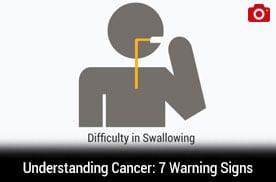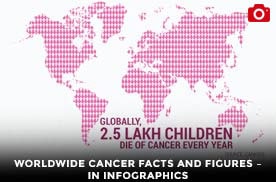Hepatocellular Carcinoma Accounts for 75% of All the Liver Cancers
Hepatocellular carcinoma is a type of liver cancer which originates from the liver cells known as hepatocytes. It is the most common type of liver tumour accounting for 75 per cent of all the liver cancers. Hepatocellular carcinoma is a leading cause of cancer related deaths worldwide. In India, the estimated number of new cases per year is 22,000 with a similar mortality.
The leading cause of this cancer is viral infection with hepatitis B and Hepatitis C Virus. The cancer usually occurs secondary to cirrhosis (small shrunken liver) caused by these viruses. In fact any cause which leads to cirrhosis such as excessive alcohol intake, certain metabolic disorders like Wilson’s disease (excessive copper deposition) and Hemochromatosis (excessive iron deposition), obesity and mushroom toxicity, etc can lead to hepatocellular carcinoma.
The diagnosis of this disease is made on the basis of Ultrasound, Computed Tomography (CT scan) or MRI of the abdomen along with raised level of a tumour marker known as alpha feto protein (AFP). Tumour markers are chemical substances not normally present in the blood of healthy individuals but seen in patients with malignancy.
Surgical resection is the primary treatment for liver tumours in non-cirrhotic liver and has a potential to completely cure the disease if performed at an early stage when tumour is small and confined to one lobe of the liver.
Unfortunately surgical resection is only possible in 10% of the patients as most of these patients have advanced diseases and cirrhosis. Liver transplantation is curative inpatients of liver cancer with cirrhosis. It replaces the native cirrhotic liver altogether and can lead to cure if performed early in the course of disease when the number of lesions in liver and small and disease has not spread out of liver.
In patients who are not candidates for surgery, various other modalities such as radiofrequency ablation, microwave therapy, chemotherapy through hepatic artery known as Trans Arterial Chemo Embolisation (TACE) and radiotherapy can control tumour progression and prolong life.
Like any other malignancy, in liver cancer too, prevention is better than cure. Due to effective immunisation program at birth against Hepatitis B virus, the incidence of hepatitis B infection has started to decrease which may reduce the risk of this cancer in future. In patients with cirrhosis, serial check up with Ultrasound and Alpha Feto protein levels can help to detect this cancer at an early stage and liver transplantation can be curative in such patients.
The signs and symptoms of this disease depend on the stage. Initially there might just be vague symptoms such as fatigue, anorexia and weight loss. The symptoms typically progress with the disease and at a later stage the patients develop jaundice, palpable mass in the liver, vomiting and persistent fever.
Dr Puneet Dargan, Sr Consultant-Liver Transplant, Fortis Hospital, Noida













